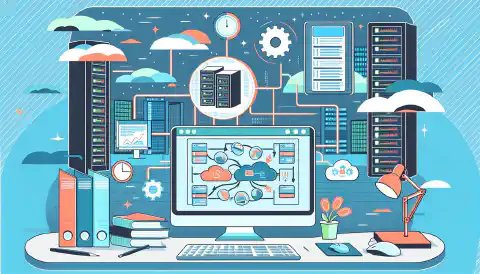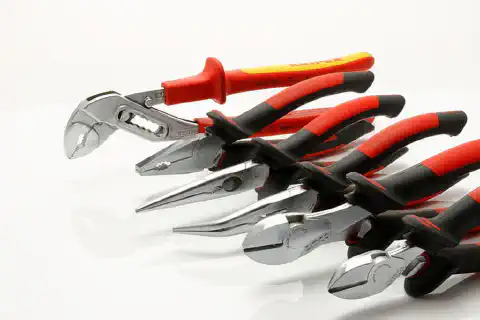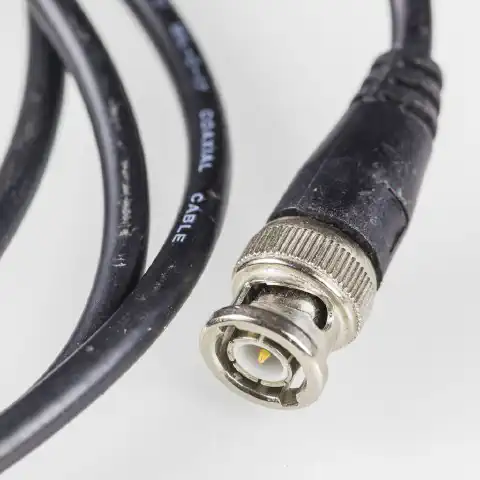The Best Homelab Hardware: Building a Powerful and Budget-Friendly Setup

Table of Contents
Are you a tech enthusiast or an aspiring sysadmin looking to enhance your skills and explore new technologies? Building a homelab can be the perfect solution for you. A homelab provides a safe and practical environment where you can experiment with different systems, applications, and technologies. It allows you to gain hands-on experience, learn new concepts, and even test your own personal projects. In this comprehensive guide, we will explore the best homelab hardware options available, catering to both beginners and those on a budget.
Why Should You Have a Homelab?
Before diving into the details of homelab hardware, let’s briefly discuss the importance of having a homelab.
A homelab is not just a hobby; it’s a powerful tool for learning and professional development. Here are a few reasons why you should consider setting up your own homelab:
- Hands-on Learning : A homelab provides a practical environment where you can experiment with different technologies, systems, and applications. It allows you to gain valuable hands-on experience, which is crucial for personal growth and career advancement.
- Skill Development : By working with various technologies and systems in your homelab, you can develop a wide range of technical skills. Whether it’s setting up servers, configuring networks, or managing virtualization platforms, a homelab offers endless opportunities for skill development.
- Exploration and Innovation : Having a homelab enables you to explore new technologies and innovate. You can test cutting-edge solutions, experiment with emerging trends, and even develop your own projects. It’s a space where you can unleash your creativity and push the boundaries of what’s possible.
- Flexibility and Control : With a homelab, you have complete control over your infrastructure. You can customize it to meet your specific needs, experiment with different configurations, and test different setups. This level of flexibility and control is hard to achieve in a traditional learning or work environment.
Now that we understand the benefits of having a homelab, let’s explore the best hardware options that can help you build a powerful and budget-friendly setup.
Choosing the Right Hardware for Your Homelab
When it comes to homelab hardware, there are several factors to consider, including processing power, storage capacity, networking capabilities, and power efficiency. Depending on your requirements and budget, you can choose from a variety of hardware options. Let’s delve into the details of each component and explore the best choices available.
1. Processor (CPU)
The processor is the heart of your homelab setup. It determines the performance and capabilities of your system. For a powerful homelab, it’s recommended to choose a multi-core processor with high clock speeds. Here are a few options to consider:
- Intel Core i7 or i9 : These processors offer excellent performance and are suitable for running multiple virtual machines or containers simultaneously. They are widely used in professional environments and provide great value for homelab enthusiasts.
- AMD Ryzen Series : The AMD Ryzen series processors are known for their exceptional performance and affordability. They offer a high core count, which is ideal for multitasking and running resource-intensive applications in your homelab.
2. Random Access Memory (RAM)
Sufficient RAM is crucial for smooth operations in your homelab. It allows you to run multiple applications simultaneously and ensures optimal performance. Here are some recommendations for RAM capacity:
- 8GB RAM : This is the minimum recommended RAM capacity for a basic homelab setup. It can handle lightweight applications and low resource requirements.
- 16GB or 32GB RAM : For more complex applications and multitasking, it’s advisable to upgrade to 16GB or 32GB of RAM. This allows for smoother operations and better performance.
3. Storage
Storage is an essential component of any homelab setup. It’s where you store your data, virtual machines, and applications. Here are two popular storage options to consider:
- Solid State Drives (SSDs) : SSDs provide faster read-write speeds, resulting in improved performance and responsiveness. They are ideal for hosting operating systems and critical applications that require quick access to data.
- Hard Disk Drives (HDDs) : HDDs are more cost-effective and offer larger storage capacities compared to SSDs. They are suitable for storing media files, backups, and non-critical data in your homelab.
It’s worth noting that many homelab enthusiasts prefer using a combination of SSDs and HDDs to achieve a balance between performance and storage capacity.
4. Networking
Networking is a crucial aspect of any homelab setup, as it enables communication between different devices and allows you to access your homelab remotely. Here are some networking components to consider:
- Router / Firewall : A reliable router or firewall is essential for managing network traffic and ensuring the security of your homelab. Consider options such as pfSense , Unifi Security Gateway , or Unifi Dream Machine Pro for advanced features and robust performance.
- Switches : Managed switches, such as those from the Unifi product line, provide greater control over your network and allow for advanced configurations like VLANs, port trunking, and port mirroring. They are user-friendly and offer central management capabilities through the Unifi controller.
- Wireless Access Points (APs): If you require wireless connectivity in your homelab, consider deploying wireless access points. Unifi APs are highly recommended for their reliability, performance, and easy management through the Unifi controller.
Consider reading our article on Ubiquiti Unifi Hardware vs TP-Link Omada as well as our article on the Ultimate Ubiquiti Unifi Setup to learn more.
5. Server Virtualization
Server virtualization is a key aspect of homelab setups, as it allows you to run multiple virtual servers on a single physical server. Here are two popular options for server virtualization:
- VMware ESXi : VMware ESXi is widely regarded as the leading hypervisor in the industry. The free version of ESXi offers a comprehensive set of features and is an excellent choice for beginners and experienced users alike.
- Proxmox VE : Proxmox VE is an open-source virtualization platform that provides powerful features like high availability, live migration, and storage clustering. It’s a cost-effective alternative to VMware ESXi and is well-suited for homelab enthusiasts.
6. Storage Solutions
In addition to the storage components mentioned earlier, it’s essential to have a robust storage solution for your homelab. Here are a couple of options to consider:
- ZFS : ZFS is a software-defined storage solution known for its reliability, data integrity, and scalability. It combines the best features of file systems and RAID, making it an excellent choice for homelab enthusiasts. FreeNAS and TrueNAS are popular options based on ZFS.
- Network-Attached Storage (NAS) : NAS devices offer centralized storage accessible to multiple devices on your network. They provide convenient file sharing, backup, and media streaming capabilities. Synology and QNAP are reputable brands known for their comprehensive NAS solutions.
7. Infrastructure Automation
As your homelab grows, managing and maintaining it becomes more challenging. Infrastructure automation tools can help simplify these tasks and enhance your efficiency. Here’s a popular tool to consider:
- Ansible : Ansible is a powerful infrastructure automation tool that allows you to automate repetitive tasks, deploy servers, and manage configurations. It’s highly versatile and can manage both Linux and Windows servers. Ansible integrates well with version control and CI/CD tools like Azure DevOps, making it a valuable asset for DevOps enthusiasts.
Conclusion
Building a homelab is an exciting journey that offers endless learning opportunities and personal growth. By carefully selecting the right hardware components, you can create a powerful and budget-friendly setup tailored to your needs. Whether you’re a beginner or working with limited resources, there are plenty of options available to help you embark on your homelab adventure. Remember to consider factors such as processing power, storage capacity, networking capabilities, and automation tools to create an optimal environment for your learning and experimentation.
Investing in the best homelab hardware will not only enhance your technical skills but also empower you to explore new technologies and advance your career. So, start planning your homelab today and unlock the potential of hands-on learning in a safe and practical environment. Happy homelabbing!
“A homelab provides the perfect playground for learning, experimenting, and innovation. It’s where you can unleash your creativity, develop new skills, and explore the vast world of technology.” - SimeonOnSecurity
References
- Intel Core Processors
- AMD Ryzen Processors
- pfSense Firewall
- Ubiquiti Unifi
- VMware ESXi
- Proxmox Virtual Environment
- ZFS
- FreeNAS
- TrueNAS
- Synology NAS
- QNAP NAS
- Ansible
Disclosure and Affiliate Statement:
Affiliate Disclosure: We may earn a commission from links on this page. These commissions support our website and the content we provide. Rest assured, we only recommend products/services we believe in. Thank you for your trust! Click Here to Learn More






